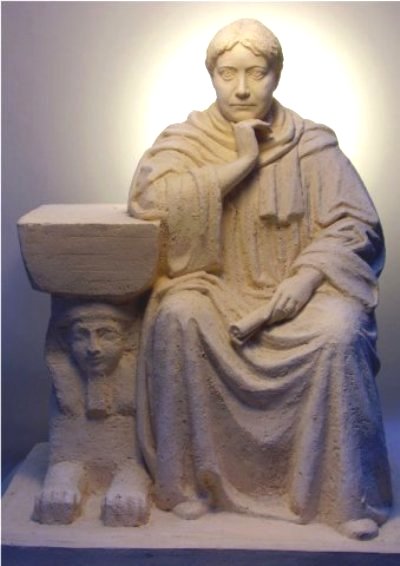8th May – White Lotus Day, the day of the passing of Helena P. Blavatsky
The 8th May is celebrated as ‘White Lotus Day’, in remembrance of Madam Blavatsky or HPB, as she was called by her friends. In his discourse on 8 May 2016, Dr. K. Parvathi Kumar said:
“On this day, Madam HPB passed over in the year 1891 and after the departure, she attained a permanent place in the Ashram of a Grand Master in the Himalayas. Grand Masters themselves declared this day as ‘White Lotus Day’ because to fulfil their grand Plan, Madam HPB was born. She was a highly pure soul which can be compared to a white lotus. It is said that there was no other being as pure as her, at the time when she was in a body. She went through lot of hardships in her life and worked towards the establishment of truth and Divine wisdom on the planet. It is considered a highly difficult task because it is the age of Kali and lot of lies was spreading around and the messengers of Kali were very powerful in their work. Through her, the Divine wisdom spread all over the globe.
So on this day, we should recollect her. She keeps giving her presence to all groups which aspire to learn and practice the path to Divinity. She has a body of light and she is always prepared to grace sincere aspirants. She was given the title ‘Upasika’ by the grand Masters. It means she was highly devoted to the Divine and his work.”
Here is a text extract of HPB’s book “From the Caves and Jungles of Hindostan“, where she speaks about her encounter with Master Morya, her teacher, whom she called there the “Thakur” or “Gulab Singh”. Have a good White Lotus Day.
“The Thakur went on smoking, and as for me. I sat on my folding chair, looking lazily at everything round me, till my eyes rested on Gulab Sing, and were fixed, as if by a spell.
“Who and what is this mysterious Hindu?” I wondered in my uncertain thoughts. “Who is this man, who unites in himself two such distinct personalities: the one exterior, kept up for strangers, for the world in general, the other interior, moral and spiritual, shown only to a few intimate friends? But even these intimate friends do they know much beyond what is generally known? And what do they know? They see in him a Hindu who differs very little from the rest of educated natives, perhaps only in his perfect contempt for the social conventions of India and the demands of Western civilization…. And that is all—unless I add that he is known in Central India as a sufficiently wealthy man, and a Thakur, a feudal chieftain of a Raj, one of the hundreds of similar Rajas. Besides, he is a true friend of ours, who offered us his protection in our travels and volunteered to play the mediator between us and the suspicious, uncommunicative Hindus. Beyond all this, we know absolutely nothing about him. It is true, though, that I know a little more than the others; but I have promised silence, and silent I shall be. But the little I know is so strange, so unusual, that it is more like a dream than a reality.”
A good while ago, more than twenty-seven years, I met him in the house of a stranger in England, whither he came in the company of a certain dethroned Indian prince. Then our acquaintance was limited to two conversations; their unexpectedness, their gravity, and even severity, produced a strong impression on me then; but, in the course of time, like many other things, they sank into oblivion and Lethe. About seven years ago he wrote to me to America, reminding me of our conversation and of a certain promise I had made. Now we saw each other once more in India, his own country, and I failed to see any change wrought in his appearance by all these long years. I was, and looked, quite young, when I first saw him; but the passage of years had not failed to change me into an old woman. As to him, he appeared to me twenty-seven years ago a man of about thirty, and still looked no older, as if time were powerless against him. In England, his striking beauty, especially his extraordinary height and stature, together with his eccentric refusal to be presented to the Queen—an honour many a high-born Hindu has sought, coming over on purpose—excited the public notice and the attention of the newspapers.”
You can read here the little brochure about Helena P. Blavatsky which I once published. And here you find my annual blogposts about the White Lotus Day.

Statue of H.P. Blavatsky by Alexey Leonov (c)


